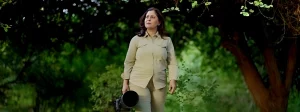(April 16, 2025) It may seem a long way from a childhood tiger sighting in India to a voice in British science policy but for Professor Anjali Goswami, it all began there. Decades later, Goswami is a globally respected evolutionary biologist, palaeontologist, and science communicator. She studies ancient life through fossils to understand how animals evolved and how ecosystems changed over millions of years. Bringing her scientific expertise to younger audiences, she has also written a children’s book titled Dig Dig Dinosaur.
Anjali Goswami is now preparing to take on a powerful new role as the UK government’s Chief Scientific Adviser at the Department for Environment, Food and Rural Affairs (Defra), where she will guide evidence-based decisions on environmental and ecological challenges.
Her appointment, announced earlier this month, marks not only a leadership transition at Defra but also a broader cultural shift. It reflects a growing embrace of science rooted in the ancient past to solve today’s environmental challenges. It is also a powerful moment of representation, led by a woman of colour in a scientific field that is still largely dominated by men.
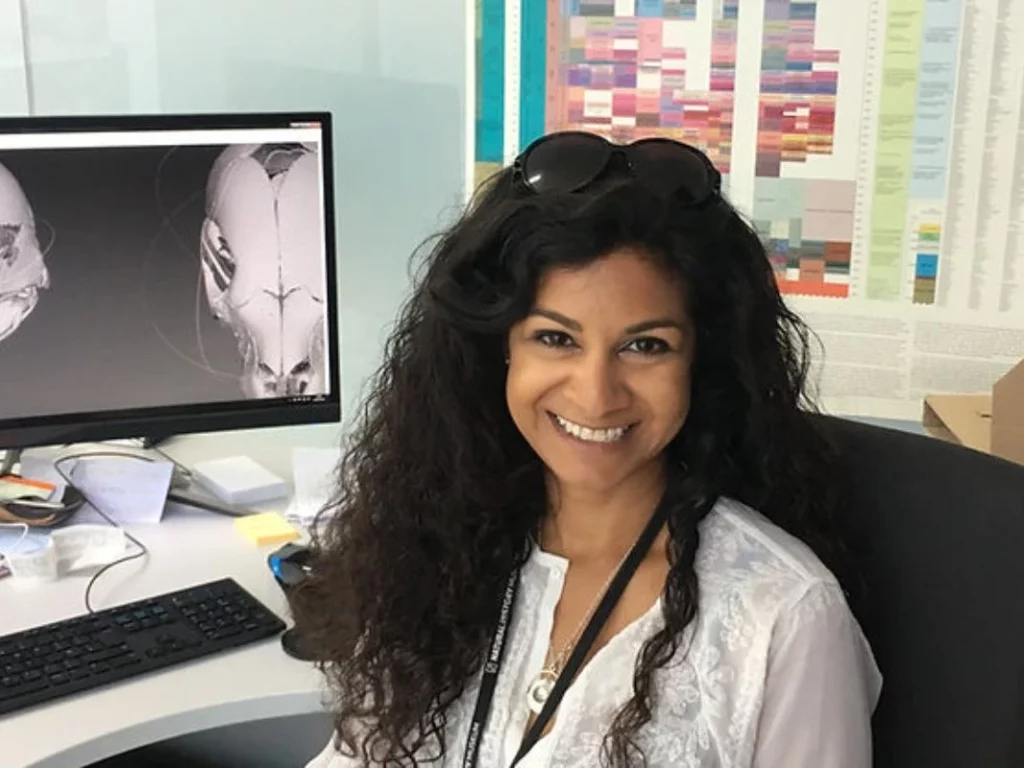
Anjali Goswami
“Fortunately, there is immense scientific innovation that can support Defra’s mission. I look forward to ensuring the most cutting-edge scientific understanding being harnessed to meet the complex challenges we face,” she said in response to the announcement.
When she takes office on July 1, Goswami will succeed Professor Gideon Henderson. She brings to the role something that sets her apart from many of her predecessors, and that is deep-time thinking. This means using the lessons of Earth’s ancient history to make sense of today’s environmental shifts. Her expertise in how animals have evolved, how biodiversity has changed, and how to use scientific models to understand life through the ages gives her a rare and valuable perspective.
From tiger tracks to dinosaur bones
Born in the United States and raised partly in India, Goswami’s passion for the natural world began early. “I first saw a tiger in the wild in India when I was four years old, and I’ve been obsessed with animals and nature ever since,” she recalls. That moment led her down a path to study evolutionary biology and paleontology—fields that look at how living things change over time and what ancient fossils can tell us about the planet’s history.
Today, she serves as Dean of Postgraduate Education and Research Leader in Life Sciences at the Natural History Museum in London. She is also an Honorary Professor in Paleobiology at University College London. Goswami is a Fellow of the Royal Society, a former President of the Linnean Society of London, and a recipient of major honours including the Humanists UK Darwin Day Medal and the Paleontological Association President’s Medal.
Her research explores how animals have evolved over time, especially by using 3D tools to study how their shapes and features change. From fossil skulls to how mammals move and how life recovered after mass extinctions, her work links the ancient past to today, and it is now helping shape environmental policies.
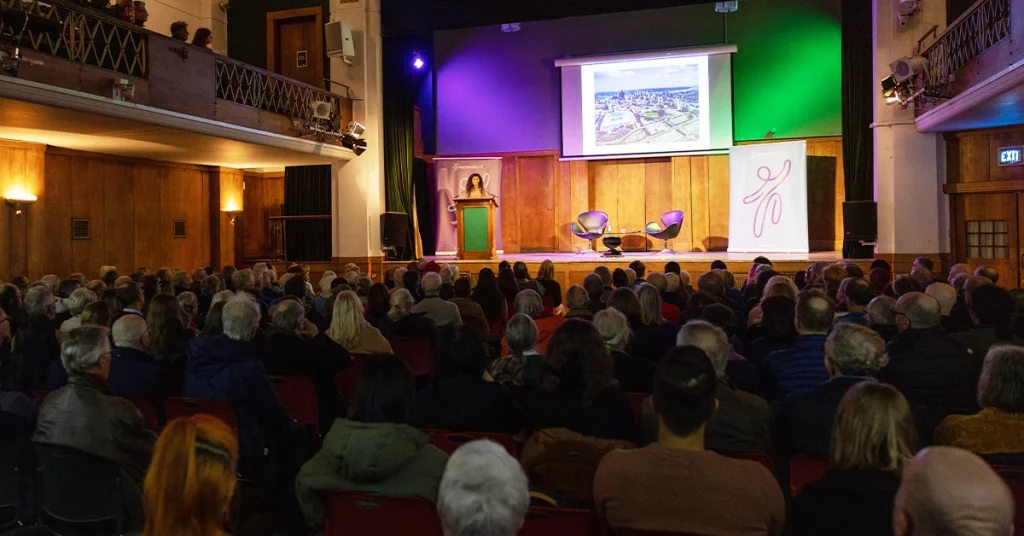
Anjali Goswami on Darwin Day 2023 at Conway Hall, London after winning the Darwin Day Medal
A rare voice in a rare field
Palaeontology is not a profession known for its diversity. Women, and especially women of colour, remain underrepresented in the field. Goswami not only entered this space but has risen to its highest levels and soon will help shape UK’s national environmental strategy. When asked in an interview which woman scientist she admires most, Goswami responded:
There are so many women in STEM that picking just one is impossible.The barriers that women have to face, especially women of colour, are immense. I admire anyone who manages to break through and then works to make it easier for others.
Anjali Goswami
Her admiration for scientists like Rachel Carson, who used scientific research to inspire environmental protection, reveals her own values that are rooted in both hard evidence and the responsibility to act. “I wish we had acted on her words earlier but hopefully we can still make the right decisions to preserve a healthy planet for future generations,” she remarked.
Dinosaurs and deep time discovery
Goswami’s science does not remain confined to laboratories. It thrives in wild and remote places shaped by millennia. Over the years, she has led fossil expeditions across India, Argentina, Morocco, Svalbard, and the United States. Her fieldwork has uncovered everything from dinosaur skulls to Ice Age mammals.
She has studied how whales evolved from animals that once walked on land, how different groups of mammals such as marsupials and placentals took different evolutionary paths, and why some animals survived past mass extinctions while others disappeared. Her recent projects, funded by top institutions like the Leverhulme Trust and the European Research Council, have looked at how body parts evolved in different animals, how fish skulls changed over time, and how genetic data matches up with what fossils show us.
But her work is not just about digging up the past. It helps us understand how species respond to stress, how nature recovers after collapse, and what all this means in the era of climate change.
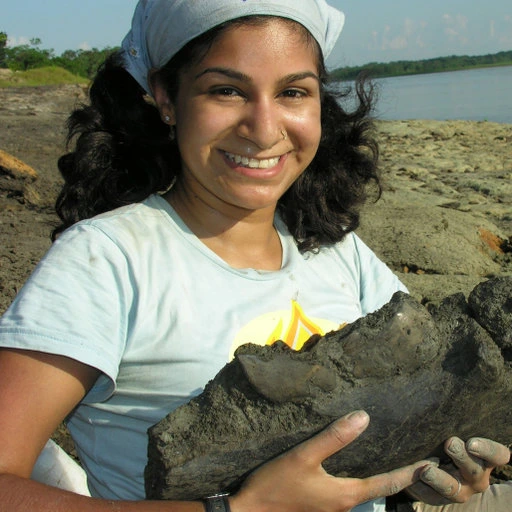
Anjali Goswami
Sharing science with the young and curious
For Goswami, the joy of science lies not only in discovery but also in storytelling. Last year, she published a children’s book titled Dig Dig Dinosaur. Aimed at readers aged three and older, the book introduces young minds to the thrill of fossil hunting. It invites them to imagine the joy of digging, dusting, and uncovering ancient life forms buried beneath the surface.
“I didn’t find any books that told this part of the story,” she said. “I wanted to inspire children with the most fun part of being a paleontologist, which is being an explorer.”
Filled with peep-through pages and vivid illustrations, the book mirrors her real-life fossil digs. “I want children to explore their world, even if it is just their neighbourhood,” she mentioned. “That sense of curiosity is where all science begins.”
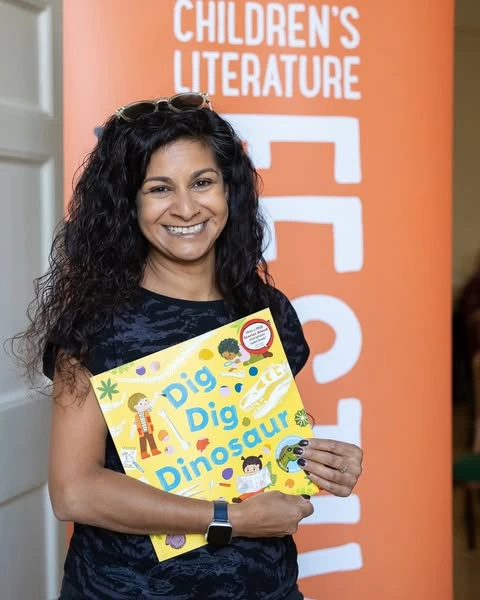
Anjali Goswami
Life beyond fossils and fieldwork
Despite her focus on the prehistoric past, Goswami embraces the present with warmth and enthusiasm. She enjoys hiking, travelling, and visiting art museums around London. Some of her happiest moments are spent reading in a hammock with her children, or walking her dog in the park. She also enjoys playing video games, especially Zelda.
These glimpses into her life reveal a scientist who is both visionary and relatable. She makes science feel accessible without ever losing its magic.
Being a scientist is so much fun. There’s nothing more exciting than knowing you are the first person to understand something or to see a new species or uncover an ancient ecosystem.
Anjali Goswami
A fossil hunter at the heart of environmental policy
As she steps into her role as the Chief Scientific Adviser at Defra, Goswami will be responsible for ensuring that environmental policy is based on the best and most up-to-date scientific knowledge. Her background in evolution and ecosystems gives her the tools to address urgent challenges such as biodiversity loss, climate resilience, sustainable agriculture, and cleaner water systems.
Her appointment shows the UK’s commitment to science-based leadership at a time when the planet’s environmental problems are becoming more urgent. In Goswami, Defra gains more than just a brilliant mind. It gains a communicator, a researcher, and someone who understands that we need to learn from Earth’s history in order to build a better future.
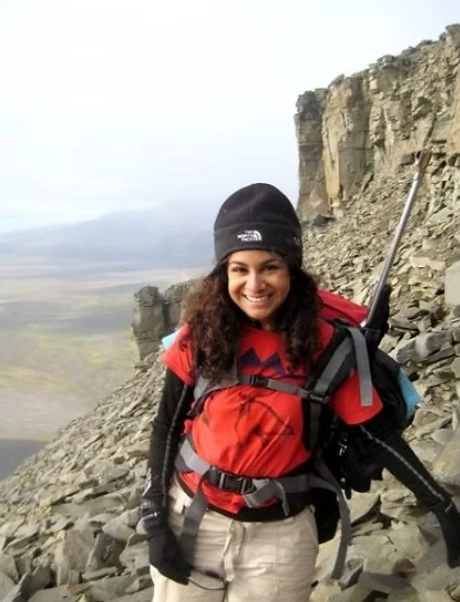
Anjali Goswami
Linking the distant past to a sustainable future
While science increasingly shapes our world, Professor Anjali Goswami helps bring it closer. Whether she is digging for fossils, writing books for curious young readers, or advising government leaders, her goal is the same, and that is to understand the past so we can make better decisions today.
Her journey from a child enchanted by a tiger to a senior scientific adviser is a reminder that curiosity and determination can shape not just personal careers, but the course of nations, and maybe even the planet.
- Follow Anjali Goswami on LinkedIn
ALSO READ: Frogman of India: Prof SD Biju is all set to make frogs popular at Harvard




